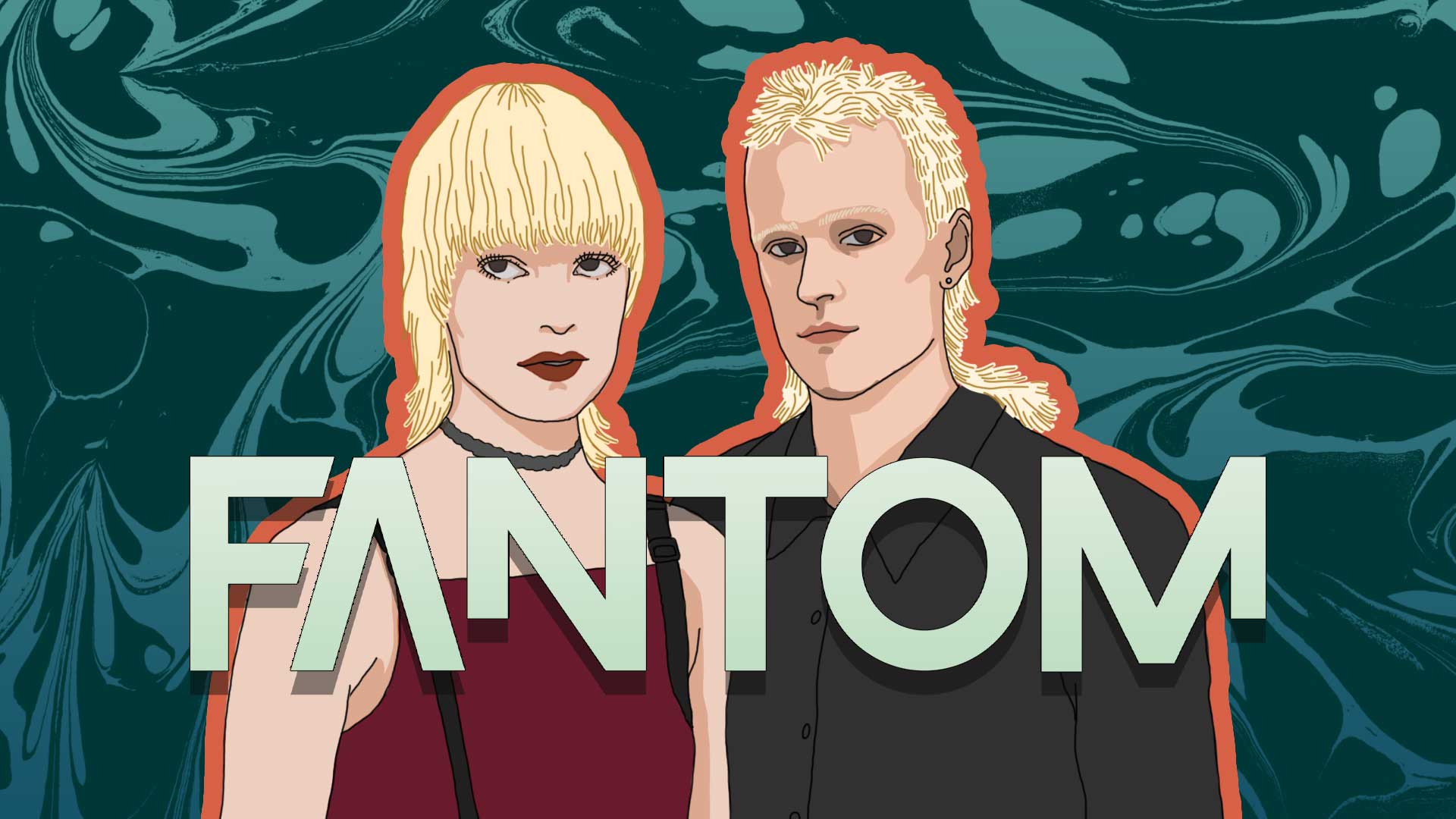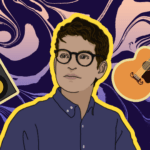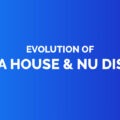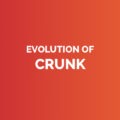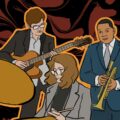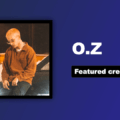United by a shared connection and passion for Montreal’s underground arts scene, DJs and nightlife organizers Lou Seltz, Oli Anthony, and Taher Gargouri came together to found FANTOM. The non-profit collective aims to ensure safety, sustainability and solidarity for the city’s queer/trans/BIPOC/ally communities who work and participate in alternative nightlife culture.
Collective action, advocacy, and the sharing of knowledge and resources are at the heart of FANTOM’s mission, created in response to frustration among communities experiencing violence, harassment, and exploitation. Co-founders Oli and Lou took the time to chat with RAC about the federation’s roots, the core issues faced by Montreal’s underground nightlife members, and their vision for a thriving and supportive future.
RAC: Thanks for taking the time, Oli and Lou! In your words, how would you describe FANTOM and what you do?
Oli: FANTOM is an answer to shared frustration. It’s a response to feeling powerless as individuals, as organizers, as artists. It stems from feeling like the options at our disposal make it impossible to sustain what we do, and to realize our dreams for what this scene could be – for what all of our lives could be like – at night.
Lou: FANTOM is short for “Fédération pour les arts nocturnes comprenant les travailleur.euses et organisateur.ices de Montréal” (which translates to The Federation for Nightlife Arts Workers and Organizers of Montreal). We wanted it to be a federation – a way for all the hundreds of underground collectives that come and go to understand and act on their shared needs.
RAC: Can you tell us about your backgrounds in arts and culture, and how you got into the Montreal nightlife scene?
Lou: I’ve played guitar since I was a baby because my dad was a luthier. I was fortunate enough that our house was covered in instruments, and that my dad needed someone to play rhythm and sing so he could practice solos! I started playing in bands when I was at Bard College in Upstate New York and moved to Montreal for the live music scene.
I’ve been in Montreal’s live music scene for a long time, but during the pandemic I got more in the nightlife scene in terms of DJing and underground organizing. For me, the different live music and electronic scenes always felt like more than just activities to do in the evening. They felt so important to me because they’re also spaces for alternative communities to build community and gather.
Oli: Having lived in Montreal all my life, there have been times I’ve been more or less a participant in underground nightlife. Certain years I hardly ever went out dancing, then other years raves were some of the most important things to me that I planned around the most. It’s an area that I’ve always had a lot of vision for what I wish I was seeing. But it’s never felt like the right moment for those visions to become real until now.
RAC: What was the catalyst that made you feel like you wanted to start something new to fill a hole in Montreal? What did you feel was missing?
Oli: In the last year or two we had ideas for events that we thought would be interesting, fun and maybe fresh for the scene. We spent all our time trying to find spaces to hold these events and found it very difficult to get in touch with the people who ran them, probably because the good spaces are short on resources.
It’s been important for us to meet as many organizers as possible to understand, in their words and from their perspective, what it is they need. None of the issues are terribly surprising – it tends to come down to safety, affordability, reliability, and access to information.
Lou: We registered FANTOM as a non-profit at the prompting of long-time Montreal organizer and DJ – and our co-founder – Taher Garhouri. He’s the one who said we need some kind of structure, funding, and additional resources to channel all these shared frustrations.
In our advocacy and projects, we wanted to make sure that we’re asking for things that people need beyond our immediate community. So we launched a survey to gather as many of these perspectives as possible and ended up getting over 100 responses from mostly DJs and nightlife organizers and workers. The vast majority of respondents were queer and many were BIPOC, which speaks to our mission. The core themes were what we expected: issues around losing all our underground spaces, safety, security, and transparency within the scene.
We now have a full team of researchers analyzing the results of the survey and are starting to work on several projects based on those results. FANTOM also plans on organizing a lot more follow-up meetings going forward to discuss these issues together.
RAC: What will these follow-up meetings look like?
Oli: We’re planning consensus building workshops. Rather than being focused on action directly, we are going to be exploring key issues and the inherent questions that they raise, and coming together to talk on a regular basis about these issues at hand to try and find consensus so that we can move forward from that point.
A workshop series could be on something like artist compensation, for example, hiring the right security team for your event, or finding the right venue for the size of the crowd. We want each workshop to focus on a specific issue so the conversations can be productive, and so people can be sure to attend the right workshops based on the experience and information that they have to share and want to learn more about.
Keep an eye on FANTOM’s upcoming events: https://fantomtl.ca/events
RAC: What upcoming events do you have coming up?
Oli: We have our launch slated for April 25th. More than being a launch, we want this to be an opportunity for all the people who responded to our survey, volunteered, engaged with us on social media, or who spoke on or attended the Perma Culture panel that we helped put together in February, to come together and see that their responses have gone somewhere. They’ve been heard and aren’t just screaming into the void.
It’s also an opportunity for folks to look at the projects that we’ve generated based on the problems that they’ve identified. They can share thoughts on those projects and the outcomes that they hope to see. This event is also going to be a great time to come sign up if you want to get involved, and meet the other people on-board.
Lou: People who want to attend can sign up – tickets are free! It’s a not-for-profit event – we don’t make anything at the door, and all bar sales go to support the venue (l’Union française) who is donating the space for us to use that night.
You don’t have to be a member or a volunteer at FANTOM to be part of the discussion, that’s why we’ve been wanting to have larger events like this.
Sign up for the FANTOM launch here: https://www.zeffy.com/en-CA/ticketing/899c0735-82e0-4192-95e3-a1e0cf4496ce
RAC: Who were your inspirations and influences to start this non-profit to serve the community?
Oli: You can’t talk about FANTOM without mentioning some of the organizations who are working towards similar goals, maybe in different ways in order to serve slightly different needs, but who are doing work that feels aligned with ours. On top of that list is non-profit organization MTL 24/24. Without their work developing and providing frameworks for Montreal nightlife, our list of things to do would be so much longer.
We’ve also been inspired by amazing harm reduction services GRIP (Groupe de recherche et d’intervention psychosociale) and PLURI. They’ve done important thinking around these issues and everyone we know who’s worked with them sings their praises.
A ton of credit also goes to Danai for teaching us how to DJ. By sharing his studio with friends and letting them come dance he inspired a lot of people to think about dance music in a different way. I don’t think we would have been able to do this without him.
RAC: What’s your biggest goal with FANTOM?
Oli: I think we’ll have done the necessary work when it’s possible to be an underground nightlife organizer, artist, worker, or participant in Montreal, and feel like the work that you do and the scenes that you enjoy are sustainable and not under threat. Nightlife should also be accessible to new people, because that’s what makes the scene so great: having new folks come in and try out ideas.
Lou: It’s all been thanks to community from the start. We rely on a team of 10-20 people who put a lot of time and energy into FANTOM, and have been so generous with sharing their networks and resources. Now I feel like we need to pass it on and give back to the community.
Written by Maryse Bernard
Illustration by Yihong Guo
